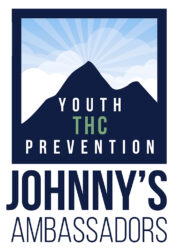By Laura Stack
The short answer is, “Of course it is,” though that’s way too glib.
We’ve already asked and answered this question in a previous blog; however, many people don’t understand how marijuana can be addictive. Sadly, according to recent surveys, the percentage of the population (both youth and adult) who consider marijuana harmful has decreased significantly in recent years. State legalization and the proliferation of pot-positive media have encouraged this attitude. Some users have even convinced themselves that herb marijuana isn’t even a drug, because it comes from a plant that grows from the bosom of Mother Nature. Just like hemlock. Or poison ivy.
We can’t let the subject go at that, just because pot isn’t as spectacular or as visible a life-destroyer as heroin, cocaine, or meth. Marijuana is an insidious threat, like a rattlesnake hiding in the field. Our parents instilled a healthy fear of rattlesnakes in us for good reason—they can make you very sick or kill you. Marijuana may not directly kill you like a heroin overdose, but it can indirectly kill you by making you go crazy and killing yourself. My son, Johnny, paid for his marijuana addiction with his life and issued this warning three days before his death: “Marijuana has ruined my life and my mind.”
Johnny suffered from a recognized substance use disorder (SUD) called Marijuana Use Disorder (MUD), a.k.a. Cannabis Use Disorder, typical of any other addictive substance. SUD is characterized by users who need the substance to get through the day. Marijuana has a dependency rate of about 30% for long-term users, with about 9% having full-on addiction. Unfortunately, some users dismiss this SUD as harmless or even beneficial to the user. It is not.
When they can’t get the drug, those who are addicted or dependent suffer from classic drug withdrawal symptoms, including:
- Cravings
- Anger
- Aggression
- Irritability
- Nervousness
- Restlessness
- Anxiety
- Insomnia
- Bad dreams
- Depression
- Lack of appetite
- Weight loss
- Depression
- Abdominal pain
- Tremors
- Excessive sweating
- Fever
- Chills
- Headaches
Many of these factors are much more severe in adolescents, who pick up their attitudes about marijuana from friends and authority figures.
So yes: clearly, marijuana is addictive to some users. The fact that many users won’t stop even when marijuana clearly affects their health offers an excellent illustration of this fact. In Colorado, a leading pro-marijuana state, we’re exposed to users (and often the smell) whether we like it or not. Some have hacking coughs, marijuana toxicity, or cannabis-induced anxiety, and yet they continue to use on a regular basis, not putting two and two together that they’re suffering from CUD/MUD.
Authoritative Support
If 20,000+ articles and reports about the negative effects of marijuana aren’t enough to convince skeptics of marijuana’s harmful nature, perhaps the main guide in the psychiatric field will. The Diagnostic and Statistical Manual of Mental Disorders, Fifth Edition (fondly known as DSM-5), published by the American Psychiatric Association, recognizes CUD/MUD as a genuine SUD. In the opinion of mental health professionals—the people who spend their lives studying and treating ailments of the human mind—marijuana is, in fact, addictive. In fact, some say it’s just as addictive as some of the most powerful narcotics, as well as its closest competitors, alcohol and tobacco.
The definitive answer lies in the 11 diagnostic indicators of Cannabis Use (Marijuana Use) Disorders According to DSM V. They include:
- Taking the substance in larger amounts or for longer than you’re meant to.
- Wanting to cut down or stop using the substance but not managing to.
- Spending a lot of time getting, using, or recovering from use of the substance.
- Cravings and urges to use the substance.
- Not managing to do what you should at work, home, or school because of substance use.
- Continuing to use, even when it causes problems in relationships.
- Giving up important social, occupational, or recreational activities because of substance use.
- Using substances again and again, even when it puts you in danger.
- Continuing to use, even when you know you have a physical or psychological problem that could have been caused or made worse by the substance.
- Needing more of the substance to get the effect you want (tolerance).
- Development of withdrawal symptoms, which can be relieved by taking more of the substance.
DSM classifies SUD indicators in four categories. Criteria #1 to #4 above fall into the category of Impaired Control; #5 to #7 fall into the category of Social Impairment; #8 and #9 fall under Risky Use; and #10 and #11 are Pharmacological Indicators of Tolerance and Withdrawal.
We don’t have space to review all 11 diagnostic criteria here, but some marijuana users do exhibit some, many, or even all these criteria. A user doesn’t have to experience all 11 of the criteria to have an SUD. At one point, I saw ALL of them in action during Johnny’s struggle with marijuana. Nor do the criteria have to necessarily proceed in the above order; the numbering system exists for the purposes of diagnosis and discussion. Some SUD sufferers may not have some of the symptoms.
The DSM provides guidelines regarding the levels of severity for an SUD. There are three: Mild, Moderate, and Severe. Mild requires only 2-3 of the 11 symptoms. An individual with 4-5 of the symptoms has a Moderate SUD. A Severe Rating, consisting of six or more of the criteria listed above, indicates addiction.
Final Notes
Marijuana is addictive. It wouldn’t have a medically defined SUD if it weren’t. It’s as easily categorized as the opioid SUD or the alcohol SUD, and acts on the same reward pathway. But it can still prove deadly, as I know all too well.
Note the illustration for this article. Claiming marijuana has no lasting negative effects is like standing on the railroad tracks focused on your weed and refusing to accept that you may be hit by a train because you don’t believe in trains. Don’t let this delusion draw in your kids.



It is not wise to diagnose or treat oneself. As it is not wise to represent oneself in a court of law.
To be your own doctor, you are choosing to put your life in the hands of an impaired thinker, whose brain is altered.
Any substance that alters your natural thought process hinders your ability to care. We all are selfish to a degree and to continue to only tend to/ duck out of this fact denies ALL religion and faith.
Agree, those who take marijuana to self-medicate are drawn into a false narrative that marijuana will cure their ails!